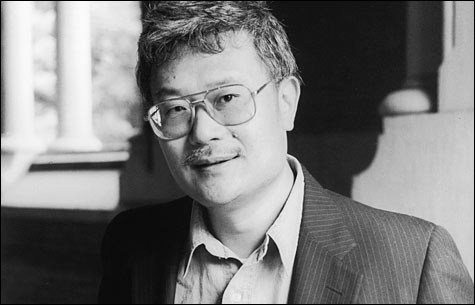
SO, NU? Ha Jin’s Chinese-American tale recalls Jewish-American fiction of 50 years ago. |
| A Free Life | By Ha Jin | Pantheon | 672 Pages | $26 |
It’s difficult to think of an American writer with a story more inspiring than Ha Jin’s. Born in China, he came to the United States in 1986 on a student visa to finish a dissertation on Auden, Eliot, Pound, and Yeats at Brandeis University. Jin and his wife had planned to return, but after the Tiananmen Square massacre, they cut their ties to China.During the next decade, Jin turned himself into one of America’s most important writers. Between 1990 and 1999, he published two books of poetry, two collections of short stories, and two novels, one of which, Waiting, won the National Book Award. In his acceptance speech, he gave his heartiest thanks to the English language, “which is embracive and vibrant, and has provided me a niche where I can do meaningful work.”
Until now, Jin has written about life in China, during and before the Cultural Revolution. In his mammoth new novel, A Free Life, however, he deploys the elements of his own powerful journey in an epic tale about a young couple at sea in America in the early 1990s.
Nan Wu is a poet who comes to the US for graduate work and gradually brings his family over: his wife, Pingping, a beautiful woman who cares more for him than he does for her, and their son, Taotao, who grows up quickly and soon becomes more capable in English than his parents are. Nan and Pingping take odd jobs — janitor, night watchman, caretaker, even restaurant owners — to make his life as stable and secure as possible. They are living the American dream, one 20-hour workday at a time.
It’s a familiar story, but broken up into short chapters and narrated in Jin’s deadpan register, it takes on the jagged, mournful resonances of Jewish fiction of 50 years ago, books like Philip Roth’s Letting Go and Isaac Bashevis Singer’s Shadows on the Hudson (which appeared serial-style in the Yiddish-language newspaper the Forward, between 1957 and 1958). Like Singer’s characters, Jin’s exiles are caught between here and there. For a while when the couple fight, Nan vows to go back to China. Then his passport is revoked and that threat no longer obtains. Pingping is so desperate and alone that she will pick up the phone and dial anyone after their quarrels; she stops after Nan discovers she’s dialing 911. They are not in love, but out of a fierce desire not to sink, and amazing will power, they accomplish much. They save up enough money to buy a restaurant in Atlanta, and then a house, and they get Taotao into a decent school.
Jin has made a calculated but effective decision to present their journey as a series of incremental changes made for practical reasons — and he’s able to maintain a certain narrative tension. You keep waiting for some catastrophe to come around the corner and sink them. A Free Life is not about American financial success, however, but about what gets lost when that’s pursued above all else. In Atlanta, Nan begins to write again, and his life of drudgery now seems like a false dream — the catastrophe that wasn’t waiting around the corner but has been sitting on top of him.